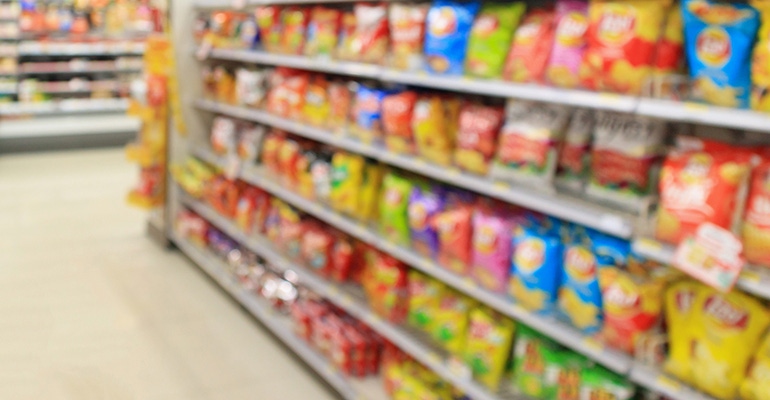5@5: Ultraprocessed foods harm mental health | Higher-than-average sales in candy segment
Each day at 5 p.m. we collect the five top food and supplement headlines of the day, making it easy for you to catch up on today's most important natural products industry news.
October 26, 2021

The emerging role of ultraprocessed foods in mental health
A recent study reported on by Medscape associates consumption of highly refined ultraprocessed foods with a 22% increased risk for future depression that on average takes two to 10 years to develop. In many Western societies, approximately half of a given consumer's daily calories will come from these products; given that they're pretty much void of nutrition, it's no wonder why obesity is skyrocketing while mental health plummets. The link between ultraprocessed foods and depression supports other strong evidence that traditional and less processed diets, such as the Mediterranean diet, lowers our risk for and helps manage depression.
What's influencing increased candy sales this year?
The pre-Halloween candy buying period is seeing elevated sales compared with the past few years, according to The Food Institute. Omnichannel seasonal candy sales from July 1 to Oct. 3 were up 29% from a year ago and 43% from the same 2019 period. Experts say that the excess candy purchases can be partially attributed to consumers' desire to indulge throughout the pandemic, but better-for-you candy (think sugar-free chocolate and the like) is the real winner here because of coinciding stress surrounding staying well. Notably, store brands are nearly always passed over for the tried-and-true manufacturer brands consumers grew up with.
People are using marijuana to treat anxiety and depression, but the science is murky
Mental health professionals are seeing more and more clients turn to marijuana in lieu of common antidepressants to manage their anxiety and depression symptoms, although some scientific evidence points to the substance's ability to worsen these symptoms. The Wall Street Journal writes that while clinical trials for cannabis' effects on mental and physical health are in the nascent stages, the American Psychiatric Association issued a statement in 2019 declaring that there is “no current scientific evidence that cannabis is in any way beneficial for the treatment of any psychiatric disorder” and noted a “strong association of cannabis use with the onset of psychiatric disorders.”
Nations are making new pledges to cut climate pollution. They aren't enough
Global pledges to limit heat-trapping greenhouse gases don't go far enough to prevent climate catastrophe, reveals a new report out of the United Nations Environment Programme. Global emissions must fall 55% by 2030 compared to previous pledges in order to limit warming to 2.7 degrees Fahrenheit by 2100. Without a significant shift in policies, global temperatures will hit around 4.8 degrees Fahrenheit, a level where dangerous heat waves could be more than 10 times more likely, and sea level rise would displace millions of people along coastlines. In the U.S., the Biden administration announced a new national commitment: reducing emissions 50-52% by 2030, compared to 2005 emissions levels. NPR has the scoop.
Microfulfillment robot specialist Fabric raises $200M on $1B valuation
Manufacturer of robotic microfulfillment solutions for grocery and e-commerce retailers Fabric announced today it has raised $200 million in a Series C funding round; this latest investment pegs the company’s valuation at $1 billion. The funding—which vaults Fabric into what its executives describe as a "robocorn" status—is relatively unsurprising given the fast growth of the company and the broader microfulfillment market. Fabric will use the money to grow its fulfillment solution in the general merchandise market and build a network of microfulfillment centers in cities nationwide. Its model relies heavily on building warehouse fulfillment centers that allow grocery retailers to outsource microfulfillment to Fabric. Learn more at The Spoon.
About the Author(s)
You May Also Like


